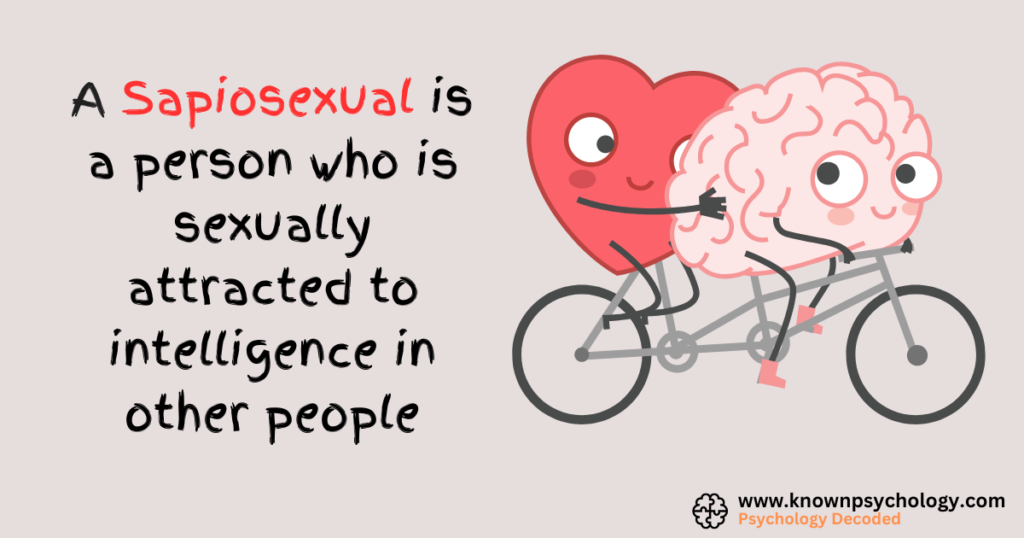
This Is How You Lose the Time War: A Mind-Bending Tale of Love, War, and Identity
“This Is How You Lose the Time War” is not your ordinary science fiction novel. Written by Amal El-Mohtar and Max Gladstone, this award-winning novella offers a poetic, epistolary experience like no other. Through its mesmerizing language and multidimensional themes, it invites readers into a surreal world where love blossoms amidst war, and time itself bends to the will of two rival agents. If you’re wondering why everyone’s talking about this book, or whether it’s worth the read, keep going. This in-depth review explores every aspect of the story—without spoilers—while optimizing for readers who are searching for insights about “this is how you lose the time war.”
What is “This Is How You Lose the Time War” About?
Set in a universe where two futuristic factions—Red and Blue—are at war, the story follows two elite agents: Red, who represents a technologically advanced empire, and Blue, who fights for a bio-evolved agency called the Garden. As they hop through centuries and timelines to outmaneuver one another, they start leaving taunting notes. What begins as rivalry morphs into something more—curiosity, admiration, and eventually, deep love.
The central narrative is delivered through a series of letters exchanged between Red and Blue. These aren’t just any messages—they’re encoded in seeds, lava, tea leaves, and even the formation of feathers. The result? A breathtakingly poetic and layered tale of connection, rebellion, and identity across the vast canvas of time.
Why the Title Matters: Decoding “This Is How You Lose the Time War”
The title, “This Is How You Lose the Time War,” is as evocative as it is curious. On the surface, it refers to the grand battle between Red and Blue’s factions. But underneath, it’s about what you sacrifice when you choose love over duty, emotion over mission, and connection over control.
By using this key phrase repeatedly, readers searching for “this is how you lose the time war” will find rich interpretations. The title speaks to a paradox: in losing the war, the characters win something even more significant—human connection.
The Poetic Style: Love Letters as Narrative
If you’re looking for straightforward science fiction, be prepared: “This Is How You Lose the Time War” reads more like love poetry than an action novel. The prose is lyrical, metaphoric, and deeply introspective. Each letter reveals not only a piece of the plot but also layers of emotion, philosophy, and identity.
For those interested in psychology, this epistolary format is a goldmine. It explores how language shapes emotion, how indirect communication can build intimacy, and how self-perception evolves when filtered through another’s gaze.
Themes Explored in “This Is How You Lose the Time War”
Let’s break down the core psychological and philosophical themes that make this book unforgettable.
1. Love Beyond Boundaries
Red and Blue fall in love despite representing opposing ideologies. This echoes real-world psychological principles of cognitive dissonance—how love can exist despite conflicting values. It’s an ideal metaphor for forbidden love, mirroring classic tales like Romeo and Juliet, but in a sci-fi shell.
2. Identity Formation
Each agent begins as a tool of her system, a product of her training. But through their letters, they grow beyond their roles. This shift is a textbook case of identity individuation—the process by which people move from being defined by groups to discovering their personal sense of self.
3. Time and Subjectivity
Because the agents travel through time, their experiences are nonlinear. This echoes psychological discussions on memory, time perception, and the fluidity of subjective experience.
4. Communication as Transformation
Their messages aren’t just correspondence—they’re acts of rebellion and vulnerability. This shows how communication can rewire our beliefs, reshape identity, and establish profound connections.
Key Characters: Red and Blue
These two characters are the emotional pillars of “This Is How You Lose the Time War.” Despite their allegiances, their arcs mirror each other in many ways.
· Red is strategic, cold, and efficient. She’s crafted by logic and order but harbors a yearning for something more.
· Blue is poetic, wild, and emotionally expressive. Her voice adds warmth and mischief to the narrative.
Their voices contrast beautifully. The story shines when they respond to each other’s metaphors and jokes, pushing one another to become more self-aware and alive.
Psychological Angle: Why This Book Resonates Deeply
Psychologically, this book hits home on many levels. It captures the complexity of modern relationships—long-distance, slow-burning, filled with subtext and nuance. It also mirrors how we present curated versions of ourselves in communication, much like how Red and Blue use poetic codes to hide and reveal at once.
Additionally, the idea of transforming through love—of becoming someone new through emotional risk—is deeply therapeutic and symbolic. Psychologists might liken their journey to the transformational arc seen in identity theory and interpersonal psychotherapy.
Literary Devices in “This Is How You Lose the Time War”
Let’s take a closer look at the techniques that make the book both a literary and psychological triumph:
· Metaphors & Symbolism: Nearly every letter drips with metaphor—about seeds, flames, threads, and more. These are not just stylistic choices, but psychological reflections of how we understand feelings through imagery.
· Nonlinear Structure: Time doesn’t follow a line, but a spiral. This mirrors how trauma, memory, and emotion behave in real life.
· Second-Person Intimacy: Some passages speak directly to “you,” drawing the reader into the story, creating emotional resonance.
Awards and Critical Acclaim
“This Is How You Lose the Time War” has won several awards, including:
· Hugo Award (2020) for Best Novella
· Nebula Award (2019) for Best Novella
· Locus Award (2020) for Best Novella
These awards reflect the book’s innovation, literary merit, and emotional impact. Readers and critics alike praise its bold experimentation and unforgettable style.
Why So Many Readers Search for “This Is How You Lose the Time War”
The phrase “this is how you lose the time war” has become something of a mantra. Not only is it the book’s title, but it also captures a deeper emotional truth about choosing vulnerability in a world that prizes control. That’s why SEO-wise, it performs well: it intrigues, resonates, and invites exploration.
If you’re a content creator, reviewer, or book influencer, this phrase is gold—people searching for it are already curious, emotionally engaged, and ready to read something profound.
Reader Reactions: Why It’s a Love-It-or-Hate-It Book
Not everyone connects with “This Is How You Lose the Time War.” Some readers find the poetic style overwhelming or confusing. But for those who love it, it becomes a life-changing experience.
If you appreciate lyrical language, emotional depth, and mind-bending plots, this is your book. But if you prefer fast-paced, plot-driven narratives, you might struggle. Regardless, its uniqueness makes it a must-read in modern speculative fiction.
Memorable Quotes from “This Is How You Lose the Time War”
Here are a few lines that capture the book’s essence:
· “Words can wound, or they can carry impossible hope.”
· “I want to meet you in every place I ever loved.”
· “You are made of time and fire and passion. You are not meant to be caged.”
These quotes don’t just sound beautiful—they’re emotionally resonant and packed with psychological subtext. They encapsulate longing, transformation, and rebellion.
Final Verdict: Should You Read “This Is How You Lose the Time War”?
Absolutely.
If you’re drawn to stories that challenge narrative structure, explore identity through emotional depth, and offer poetic reflections on love and time, this book is essential. For psychology enthusiasts, it offers endless material for analysis: how identity shifts through connection, how language mirrors the psyche, and how love defies even time itself.
Key Takeaways
· “This Is How You Lose the Time War” is a poetic, epistolary sci-fi novella.
· The story explores themes of love, identity, and time through letters between rival agents.
· Its use of language and symbolism creates a unique emotional and intellectual reading experience.
· Readers looking for deep psychological insights will find this book especially rewarding.
FAQs
Is This Is How You Lose the Time War a romance novel?
Yes, but in a very unconventional way. It’s a love story disguised as a time-travel war tale.
Who should read this book?
Anyone who enjoys poetic language, psychological depth, and science fiction.
Why is the book told through letters?
Because it builds intimacy between the characters and reveals their emotional evolution.
Is it hard to understand?
Some readers find the writing style complex, but others find it deeply rewarding once they settle into the rhythm.
Where can I buy or read it?
You can find it on Amazon, in local bookstores, or your public library.
Whether you’re a psychology buff, a sci-fi enthusiast, or simply someone looking for a book that speaks to the soul, “This Is How You Lose the Time War” offers a reading experience like no other. And that’s exactly why so many people are still searching for—and falling in love with—this unforgettable tale.
A Note from KnwonPsychology
At KnownPsychology, we believe that stories like “This Is How You Lose the Time War” are more than fiction—they’re windows into the human psyche. Through poetic language, emotional complexity, and timeless themes, this book captures the essence of what it means to connect, to rebel, and to rediscover oneself. We’re proud to spotlight literature that deepens our understanding of identity, love, and the power of communication across even the boundaries of time.
Mariam holds an MS in Sociology with a specialization in Medical Sociology and Social Psychology. With a strong academic background and extensive research work in both fields, she brings depth and clarity to complex topics. Her writing explores the intersection of society, health, and the human mind, making academic ideas easy to grasp and relevant to everyday life.


